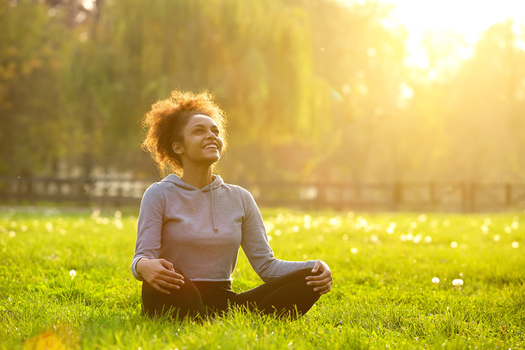
The big mistake you’re making when it comes to vitamin D
If days basking in the sunshine might feel like distant memories and instead, you’re curled up inside, that lack of sunshine may not only be getting you down, but it could be affecting your physical health too.
Approximately one third of New Zealanders are low in Vitamin D – something hard to comprehend when vitamin D is naturally created when the sun’s UVB rays touch your skin.
But getting enough vitamin D may take more than some warn rays of sun. The big mistake we could be making is not eating enough foods that contain vitamin D.
While there hasn’t been a lot of research done in New Zealand, a recent study, published in the Journal of Human Nutrition and Dietetics, found 95% of Australians had low vitamin D intakes, with young people and women the worst culprits. The study also discovered most Australians consumed less than half the recommended vitamin D intake and called for diet strategies to encourage people to eat more foods containing vitamin D.
Yes, some things just need each other. Like celery and peanut butter. Cheese and crackers. Vitamin D and calcium. Vitamin D plays a crucial role in helping our body absorb and regulate calcium to build strong bones and teeth.
Sanitarium dietitian Tayla Daniel explains vitamin D and calcium are a power pairing that most women need more of.
“Without these two nutrients, our bones can start to lose mass from as early as our mid-twenties, growing weak and brittle. For the best absorption of calcium - which can be found in fortified plant milks and cereals, leafy greens, some nuts and dairy products - make sure you get enough vitamin D,” says Tayla.
So, here’s the why, how, and where of this nutrient power pair, so you can increase your levels and live well.
If you think you may be low in vitamin D or calcium always speak with your GP or dietitian first before starting a supplement or changing your diet.
Approximately one third of New Zealanders are low in Vitamin D – something hard to comprehend when vitamin D is naturally created when the sun’s UVB rays touch your skin.
But getting enough vitamin D may take more than some warn rays of sun. The big mistake we could be making is not eating enough foods that contain vitamin D.
While there hasn’t been a lot of research done in New Zealand, a recent study, published in the Journal of Human Nutrition and Dietetics, found 95% of Australians had low vitamin D intakes, with young people and women the worst culprits. The study also discovered most Australians consumed less than half the recommended vitamin D intake and called for diet strategies to encourage people to eat more foods containing vitamin D.
Upping vitamin D intakes has important knock-on effects for calcium
Yes, some things just need each other. Like celery and peanut butter. Cheese and crackers. Vitamin D and calcium. Vitamin D plays a crucial role in helping our body absorb and regulate calcium to build strong bones and teeth.
Sanitarium dietitian Tayla Daniel explains vitamin D and calcium are a power pairing that most women need more of.
“Without these two nutrients, our bones can start to lose mass from as early as our mid-twenties, growing weak and brittle. For the best absorption of calcium - which can be found in fortified plant milks and cereals, leafy greens, some nuts and dairy products - make sure you get enough vitamin D,” says Tayla.
So, here’s the why, how, and where of this nutrient power pair, so you can increase your levels and live well.
Vitamin D | Calcium | |
| Why you need it? | Helps your body absorb calcium, builds strong bones and teeth, supports brain health, healthy muscles and nerves, strong immune system, lowers dementia risks, lowers risk of osteoporosis. | Bone development and growth in children, maintaining strong bones and teeth, helps blood clotting, healthy muscle and nerve function, release of hormones. |
| How much do you need? | Adults need 5 - 15 µg of vitamin D a day, with requirements increasing as we get older. | Adults need 1000mg a day, which increases to 1300mg for adolescents, post-menopausal women and adults over 70. |
| Signs you are low | Fatigue, frequent sickness, low mood, gut issues, hair loss, muscle weakness, sore joints, snoring, sleep apnoea, teeth grinding, high blood pressure, sweaty hands. | Fatigue, muscle weakness, muscle cramps, memory loss, brittle nails, low mood. |
| Natural sources | Sunlight, oily fish, eggs, UV-irradiated mushrooms, fortified foods such as plant-based milks, margarines and cereals. | Dairy foods, fortified plant-milks, nuts, green leafy vegetables, tofu, dried figs, amaranth, tahini. |
If you think you may be low in vitamin D or calcium always speak with your GP or dietitian first before starting a supplement or changing your diet.
More in

The latest nutrition advice, plus health and wellness tips delivered to your inbox monthly

